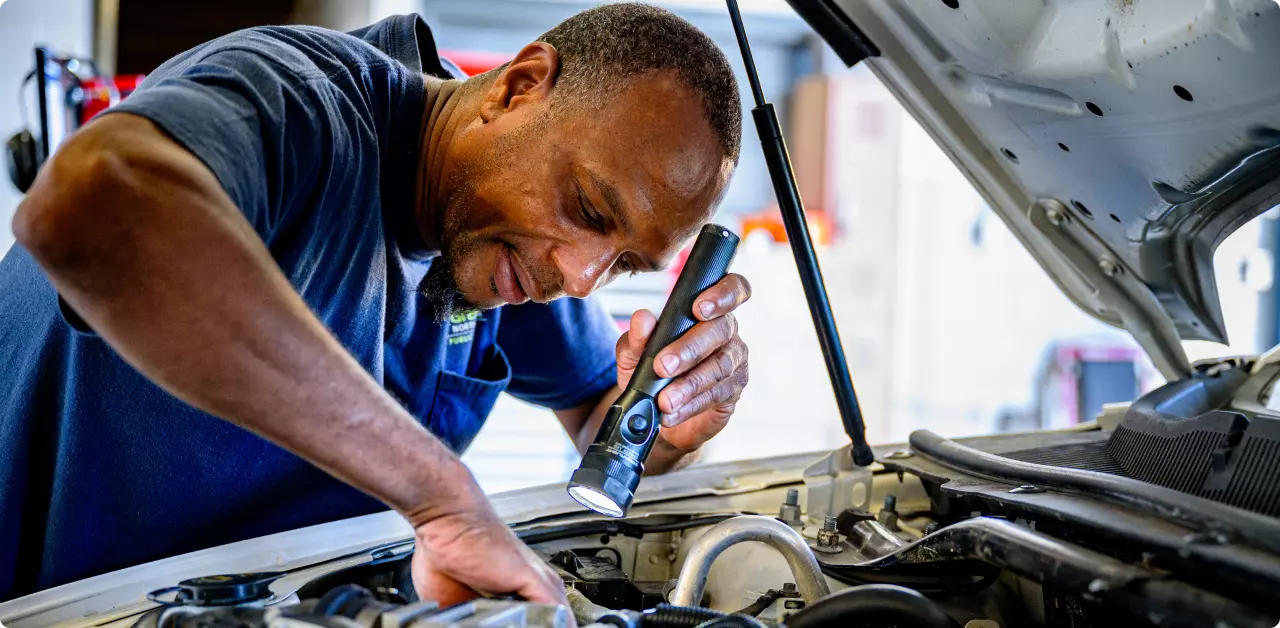All Categories
Featured
The timing belt is an essential element of your engine, accountable for integrating the motion of various engine parts, such as the crankshaft and camshaft. This makes certain the engine's valves close and open at the appropriate times throughout the burning cycle. While the timing belt may not be something you think of frequently, overlooking its maintenance can result in significant engine damage and pricey repair services. Here's why timing belt substitute is vital for your vehicle's durability and performance.
What Is a Timing Belt and How Does It Function? The timing belt is a rubber or composite material belt that connects the crankshaft to the camshaft in an internal burning engine. The camshaft manages the opening and closing of the engine's intake and exhaust shutoffs, and it needs to be timed perfectly with the movement of the pistons in the engine. The timing belt guarantees that these elements are in sync, enabling the engine to run smoothly.
If the timing belt comes to be or falls short worn, the camshaft and crankshaft will certainly no longer be integrated, which can create the engine's valves to hit the pistons. This brings about devastating engine damage and often requires costly repair work or even an engine substitute.
Why Is Timing Belt Substitute Important? Over time, the timing belt can use down due to rubbing, warm, and basic engine wear. While it may appear like a little concern, a defective timing belt can bring about severe engine problems. Below's why prompt substitute is crucial:
Protecting Against Engine Damage: As discussed, a busted or sliding timing belt can cause the engine's shutoffs and pistons to clash. This results in bent valves, damaged pistons, and in extreme situations, a full engine failing. Replacing the timing belt prior to it breaks can avoid this costly damage.
Maintaining Engine Performance: A worn-out timing belt can interrupt the synchronization of the engine components, minimizing general engine efficiency. Changing the belt assists preserve optimum engine feature, ensuring smooth operation, enhanced gas performance, and better performance.
Avoiding Unanticipated Malfunction: A busted timing belt can leave you stranded on the side of the roadway, triggering a major hassle. By replacing the timing belt at the recommended intervals, you can prevent the threat of an unanticipated break down, specifically in the center of a lengthy journey or when you least anticipate it.
![]()
Saving Money in the future: While timing belt replacement can feel like a cost you may intend to postpone, it's more affordable than the expense of fixing or changing a harmed engine. The replacement price is fairly inexpensive compared to the extensive fixings required if the timing belt breaks. Positive upkeep can conserve you hundreds of bucks out of commission and protect your vehicle's worth.
When Should You Change the Timing Belt? The timing belt replacement schedule can differ relying on your vehicle's make and version. As a whole, most makers suggest changing the timing belt every 60,000 to 100,000 miles. It's always best to consult your owner's handbook or a relied on mechanic for details suggestions for your car.
Signs that your timing belt may need replacement consist of unusual engine noises such as ticking or grumbling, difficulty beginning the engine, or a noticeable decline in engine performance. If you experience any one of these signs and symptoms, it is essential to have the timing belt inspected immediately.
![]()
Conclusion. Changing the timing belt at the suggested periods is an essential component of keeping your engine's health and guaranteeing that your vehicle runs smoothly. A busted timing belt can lead to costly repairs, engine failure, and unforeseen breakdowns, which can be stayed clear of with appropriate maintenance. If you see any indications of wear or damages, always follow the producer's advised timing belt substitute schedule and get in touch with a specialist auto mechanic. By keeping this important component of your engine in good problem, you'll secure your car from expensive fixings and take pleasure in a lot more miles of carefree driving.
What Is a Timing Belt and How Does It Function? The timing belt is a rubber or composite material belt that connects the crankshaft to the camshaft in an internal burning engine. The camshaft manages the opening and closing of the engine's intake and exhaust shutoffs, and it needs to be timed perfectly with the movement of the pistons in the engine. The timing belt guarantees that these elements are in sync, enabling the engine to run smoothly.
If the timing belt comes to be or falls short worn, the camshaft and crankshaft will certainly no longer be integrated, which can create the engine's valves to hit the pistons. This brings about devastating engine damage and often requires costly repair work or even an engine substitute.
Why Is Timing Belt Substitute Important? Over time, the timing belt can use down due to rubbing, warm, and basic engine wear. While it may appear like a little concern, a defective timing belt can bring about severe engine problems. Below's why prompt substitute is crucial:
Protecting Against Engine Damage: As discussed, a busted or sliding timing belt can cause the engine's shutoffs and pistons to clash. This results in bent valves, damaged pistons, and in extreme situations, a full engine failing. Replacing the timing belt prior to it breaks can avoid this costly damage.
Maintaining Engine Performance: A worn-out timing belt can interrupt the synchronization of the engine components, minimizing general engine efficiency. Changing the belt assists preserve optimum engine feature, ensuring smooth operation, enhanced gas performance, and better performance.
Avoiding Unanticipated Malfunction: A busted timing belt can leave you stranded on the side of the roadway, triggering a major hassle. By replacing the timing belt at the recommended intervals, you can prevent the threat of an unanticipated break down, specifically in the center of a lengthy journey or when you least anticipate it.

Saving Money in the future: While timing belt replacement can feel like a cost you may intend to postpone, it's more affordable than the expense of fixing or changing a harmed engine. The replacement price is fairly inexpensive compared to the extensive fixings required if the timing belt breaks. Positive upkeep can conserve you hundreds of bucks out of commission and protect your vehicle's worth.
When Should You Change the Timing Belt? The timing belt replacement schedule can differ relying on your vehicle's make and version. As a whole, most makers suggest changing the timing belt every 60,000 to 100,000 miles. It's always best to consult your owner's handbook or a relied on mechanic for details suggestions for your car.
Signs that your timing belt may need replacement consist of unusual engine noises such as ticking or grumbling, difficulty beginning the engine, or a noticeable decline in engine performance. If you experience any one of these signs and symptoms, it is essential to have the timing belt inspected immediately.

Conclusion. Changing the timing belt at the suggested periods is an essential component of keeping your engine's health and guaranteeing that your vehicle runs smoothly. A busted timing belt can lead to costly repairs, engine failure, and unforeseen breakdowns, which can be stayed clear of with appropriate maintenance. If you see any indications of wear or damages, always follow the producer's advised timing belt substitute schedule and get in touch with a specialist auto mechanic. By keeping this important component of your engine in good problem, you'll secure your car from expensive fixings and take pleasure in a lot more miles of carefree driving.
Latest Posts
Experience Your Financial Partner at WyHy – Wyoming’s Best Banking Choice for Your Future
Published en
1 min read
Explore Your Financial Partner at WyHy – Top Benefits for Members
Published en
1 min read
Protect and Enhance Your Home with Weathercraft's House siding Providers
Published en
1 min read
More
Latest Posts
Experience Your Financial Partner at WyHy – Wyoming’s Best Banking Choice for Your Future
Published May 26, 25
1 min read
Explore Your Financial Partner at WyHy – Top Benefits for Members
Published May 25, 25
1 min read
Protect and Enhance Your Home with Weathercraft's House siding Providers
Published May 23, 25
1 min read